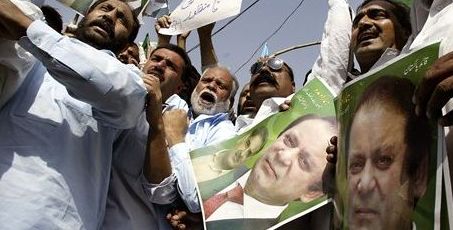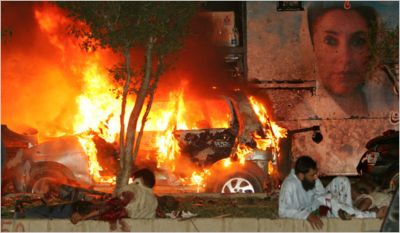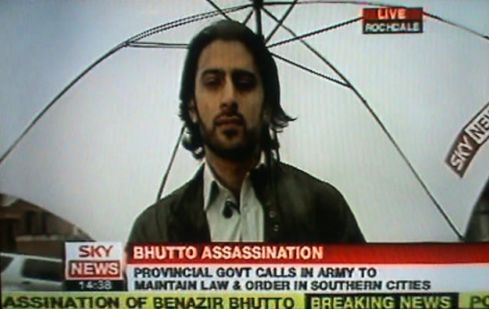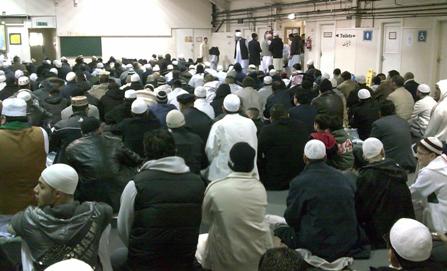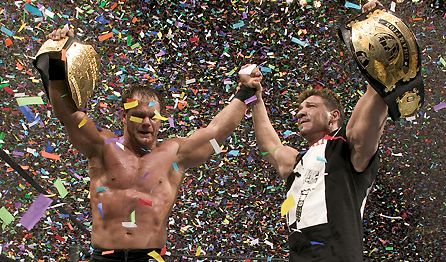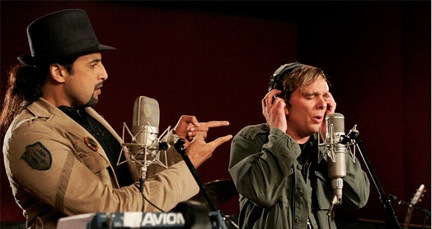 By Salman Ahmad
By Salman Ahmad As Pakistan descends into political chaos, much attention has been given to two leaders competing for power -- the current dictator, Gen.
Pervez Musharraf, and the media-savvy former prime minister,
Benazir Bhutto.
The White House appears to be backing Musharraf as its best bet in the "war on terror," while much of the world's media and Western liberal elite see Bhutto as a democratic savior for a country mired in Islamic fundamentalism.
Both fail to recognize the core problem plaguing Pakistani society: Without a strong and independent judiciary,
Pakistan, a nuclear-armed state, will forever be at the mercy of dictators and power-hungry politicians. Lack of oversight and institutional accountability leads to coups, counter-coups and perpetual instability.
As an artist and social activist, I have worked with the governments of both Musharraf and Bhutto on peace initiatives and socially uplifting themes. I have been disillusioned by their lack of commitment to getting real work done; they appear to spend most of their time consolidating their power bases.
On several occasions after Sept. 11, 2001, I was invited to Musharraf's house in Islamabad, and he even joined me onstage at a concert to help support a united front against extremism. I, like many members of my generation, initially believed Musharraf's commitment to introducing an era of "enlightened moderation" in Pakistan, a nation that was hijacked by religious fanatics during the American-backed military dictatorship of Gen. Mohammed Zia ul-Haq in the 1980s.
